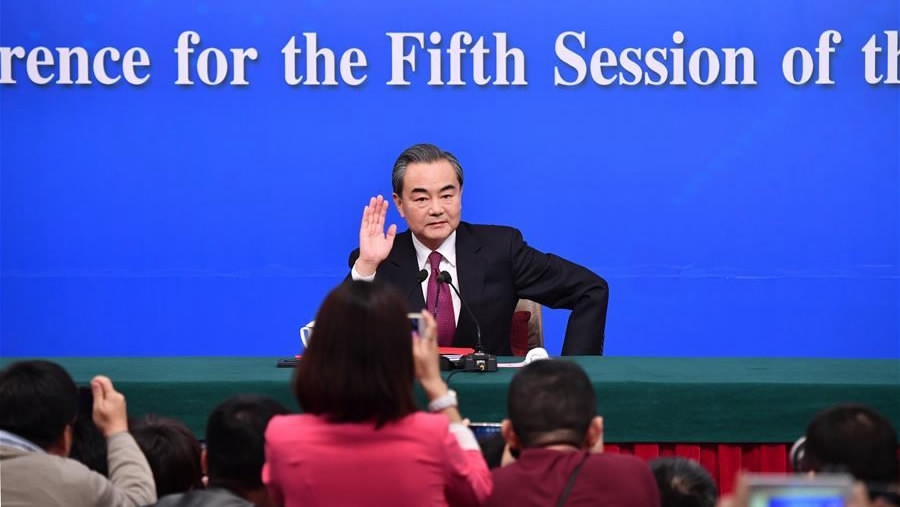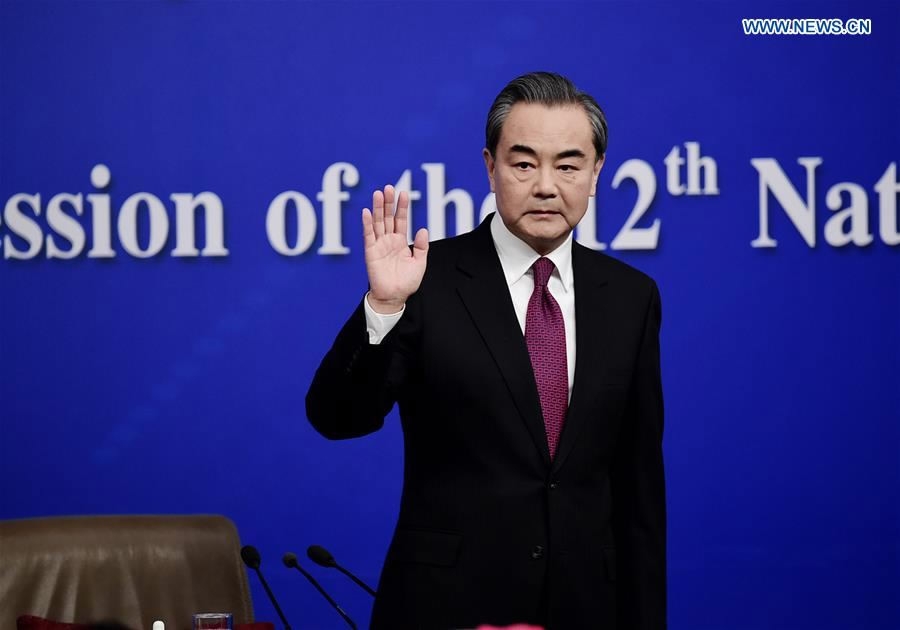
Politics
16:59, 09-Mar-2017
Views on Two Sessions: China ready for more responsibility
Updated
11:00, 28-Jun-2018

Guest commentary by Fraser Cameron
At a press conference following the National People’s Congress (NPC), Foreign Minister Wang Yi summed up Chinese diplomacy with three key words: vision, initiative and consistency.
Europeans will welcome his remarks as to a large extent, serving as a tie-in to their own ambitions and objectives. EU leaders will also be pleased to hear his strong support for European integration. "We believe the challenges currently confronting Europe may turn out to be an opportunity for the European Union to become mature," said China’s top diplomat.
In terms of initiative, the most eye-catching proposal was the idea of a "double suspension" to defuse the looming crisis on the Korean Peninsula. The US and South Korea should stop their military exercises, and North Korea should stop their missile tests. The urgency of this proposal was apparent just as Wang was speaking of the first US batteries for the anti-missile deployment (THAAD) system that arrived in Seoul. It remains to be seen how Washington and Pyongyang respond to this important Chinese initiative.

Chinese Foreign Minister Wang Yi waves to media at a press conference on China's foreign policy and foreign relations for the Fifth Session of the 12th National People's Congress in Beijing, March 8, 2017. /Xinhua Photo
Chinese Foreign Minister Wang Yi waves to media at a press conference on China's foreign policy and foreign relations for the Fifth Session of the 12th National People's Congress in Beijing, March 8, 2017. /Xinhua Photo
In regards to China's relationship with the US, Wang was surprisingly upbeat, stating that relations were “transitioning steadily and developing in a positive direction.” He added that as long as both countries acted on the consensus reached between their presidents, followed the principle of no conflicts and confrontation, and hold to the principles of mutual respect and win-win cooperation, there was no reason why China and the United States could not become excellent partners.
Given the uncertainties surrounding US foreign policy under US President Donald Trump, and especially with the ‘China-bashing’ from some members of his entourage, it remains to be seen whether US-China relations will develop as smoothly as Wang is predicting. Much will depend on whether the Trump administration operates with the multilateral system, particularly on trade disputes.
Like China, Europe remains perplexed by the antics of the new US president. Who actually speaks for the administration? Do we listen to his respected advisors – McMaster, Tillerson and Mattis? Or do we consider that a 4:30 a.m. tweet is the policy of the administration?
Wang admitted that China would be operating in a difficult global situation, facing rising protectionism and growing nationalism. Although he did not mention President Trump by name, it was clear to whom his remarks were addressed. If the US would not support globalisation and seek to strengthen the multilateral system, then China was ready to do so. China did not want a leadership role, but was ready to shoulder more responsibility.
Mirroring the comments made by President Xi Jinping at the World Economic Forum in Davos, Wang said that the world had benefited greatly from globalisation and moving down the protectionist path would be a dead end. He singled out China’s establishment of the Asia Infrastructure Investment Bank (AIIB) and the launching of the One Belt, One Road initiative as examples of China’s commitment to a multilateral approach to regional and global economic affairs.
The foreign minister said that the Belt and Road Initiative had become “the most popular public goods program, and a shining platform for international cooperation.” He reminded the media that President Xi will host an One Belt, One Road initiative summit in Beijing in mid-May, which is expected to attract many world leaders. He will also host a BRICS summit later in the year. Wang was also positive about BRICS, stating that “the BRICS mechanism will not lose its luster, but will shine more brightly.”
Although these summits will not provide the same platform as the G20 summit in Hangzhou, they will provide an opportunity for China to strengthen its position as a champion of multilateralism.
Foreign policy cannot be separated from domestic policy and the main decisions taken at the Congress related to economic, social and legal reforms. If these reforms are implemented then the domestic platform for a more outgoing Chinese foreign policy will be strengthened.
(Fraser Cameron is Director of the EU-Asia Center in Brussels. The article reflects the author's opinion, not necessarily the views of CGTN.)
52km

SITEMAP
Copyright © 2018 CGTN. Beijing ICP prepared NO.16065310-3
Copyright © 2018 CGTN. Beijing ICP prepared NO.16065310-3